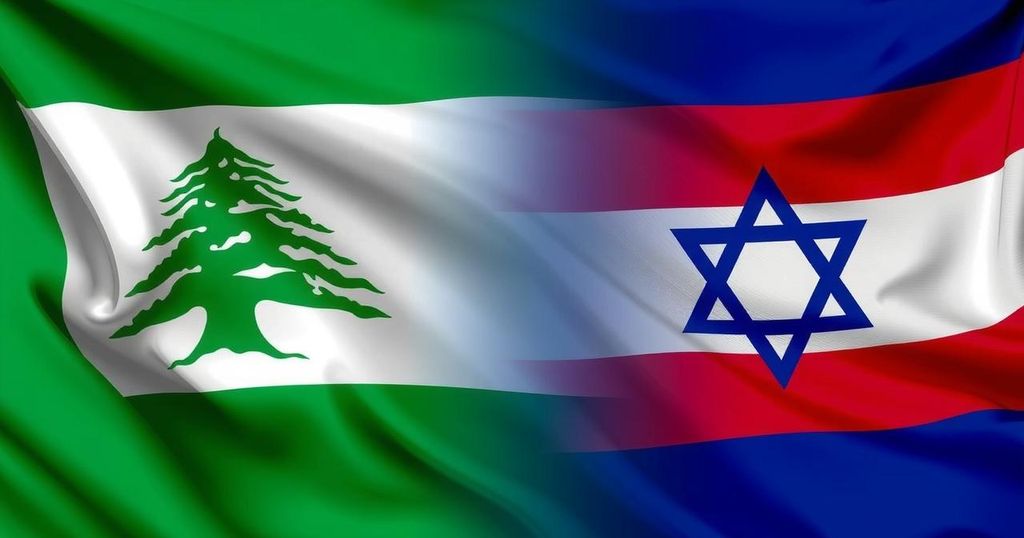Israeli Foreign Minister Israel Katz stated that Lebanon could normalize relations with Israel if a deal is reached with Saudi Arabia first. Katz’s remarks came during discussions with Italian Foreign Minister Antonio Tiani, amidst ongoing diplomatic tensions and military conflicts involving Israel, Lebanon, and Palestinian territories. Current negotiations with Saudi Arabia regarding normalization are stalled, primarily due to unresolved issues concerning Palestinian statehood. Katz also emphasized the need for a more effective UN peacekeeping force in Lebanon to address Hezbollah’s actions. The complex dynamics highlight the challenges in regional peace efforts.
Israeli Foreign Minister Israel Katz has indicated that Lebanon could potentially establish diplomatic relations with Israel, contingent upon Israel first reaching a normalization agreement with Saudi Arabia. His comments were made during a conversation with Italian Foreign Minister Antonio Tiani, where he noted, “Lebanon could become part of the circle of normalization with Israel if normalization with the Kingdom of Saudi Arabia is achieved.” Despite this statement, the specifics of how this possibility could unfold remain ambiguous. Currently, Lebanon does not recognize Israel and remains technically in a state of war with its southern neighbor, exacerbated by ongoing regional tensions. The United States has been engaged in mediating discussions between Tel Aviv and Riyadh, proposing a security arrangement with Saudi Arabia in exchange for normalized ties. However, these negotiations have stalled since the onset of the Gaza conflict last year, as Saudi Arabia has indicated it will not pursue normalization unless the Palestinian issue is addressed, which Israel’s far-right government has rejected. During the same discussion, Minister Tiani responded to Katz’s remarks by asserting Italy’s position regarding the Palestinian state, stating, “Italy will not recognise the Palestinian state without an agreement with Israel.” He further emphasized that recognizing a Palestinian state under the current conditions lacks significance, given international concerns about Hamas’s classification as a terrorist organization. On matters concerning the United Nations Interim Force in Lebanon (UNIFIL), Katz expressed Israel’s desire for enhanced effectiveness of this peacekeeping force in dealing with Hezbollah, amidst escalating hostilities between the group and the Israeli military following Israel’s military actions in Gaza. He mentioned, “I emphasised that UNIFIL must adapt to be part of the solution in Lebanon’s future.” Discussions included potential amendments to UN Resolution 1701, which may augment UNIFIL’s powers, a move that the Lebanese government argues may infringe upon its sovereignty. This comes in light of intensified Israeli military actions that have resulted in significant casualties in Lebanon, including civilian loss. Following the meeting, Katz highlighted the imperative adjustments required within UNIFIL’s mandate to confront Hezbollah effectively, demonstrating the complex dynamics at play in the region amid ongoing hostilities and the broader peace processes.
The diplomatic relations between Israel and Lebanon remain fraught with tension, primarily due to the long-standing state of conflict and non-recognition between the two nations. In recent years, developments surrounding the potential normalization of Israeli relations with Arab states have gained prominence, particularly with Saudi Arabia, as it could create a ripple effect in the region. Israel’s foreign policy aims to expand its circle of peace, suggesting that if pivotal nations like Saudi Arabia engage in normalization, it may lead Lebanon to reassess its stance. Additionally, the involvement of external powers, such as the United States, is crucial as they mediate discussions and propose security arrangements that could influence the regional balance.
In summary, the prospect of Lebanon normalizing relations with Israel is closely tied to Saudi Arabia’s decisions regarding similar diplomatic actions. Israeli officials see Riyadh’s potential alignment with Israel as a catalyst for Lebanon’s reconsideration. Nonetheless, the complexities surrounding the Palestinian situation and the ongoing military conflicts continue to hinder progress. The enhancement of UNIFIL’s capabilities also stands as a critical point of discussion, underscoring the necessity for effective peacekeeping measures amid escalating unrest in the region. The evolving geopolitical circumstances will require careful navigation among all parties involved.
Original Source: www.newarab.com






